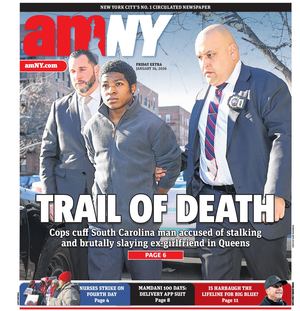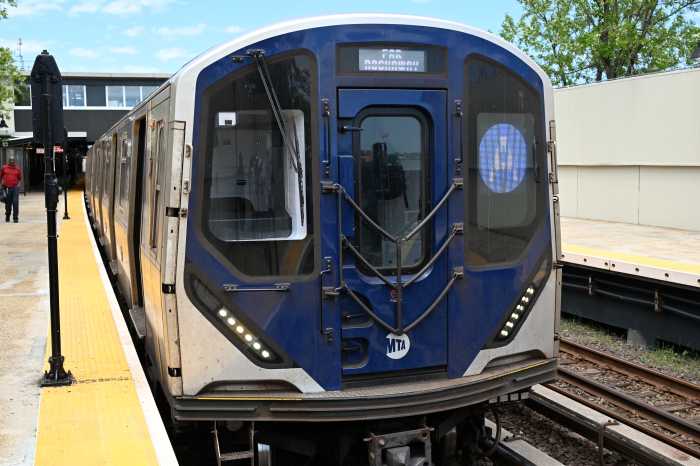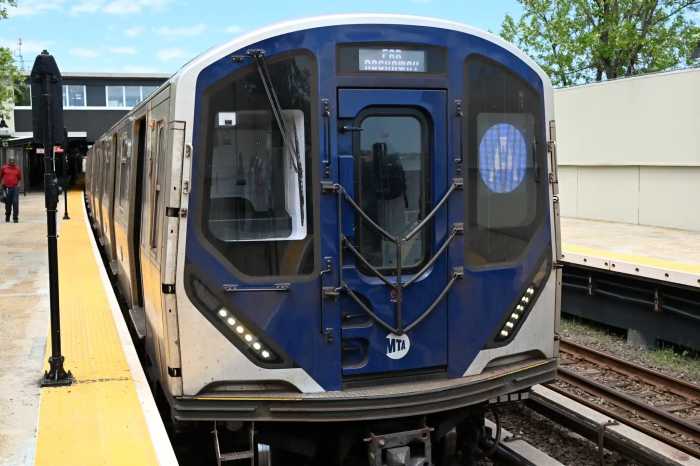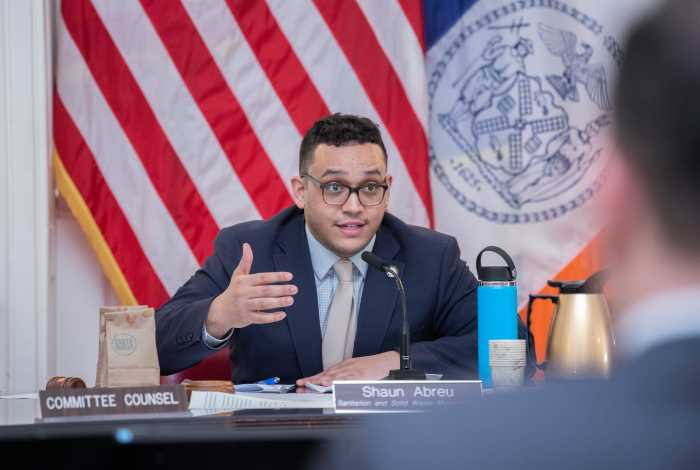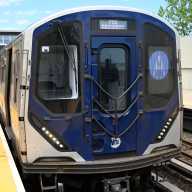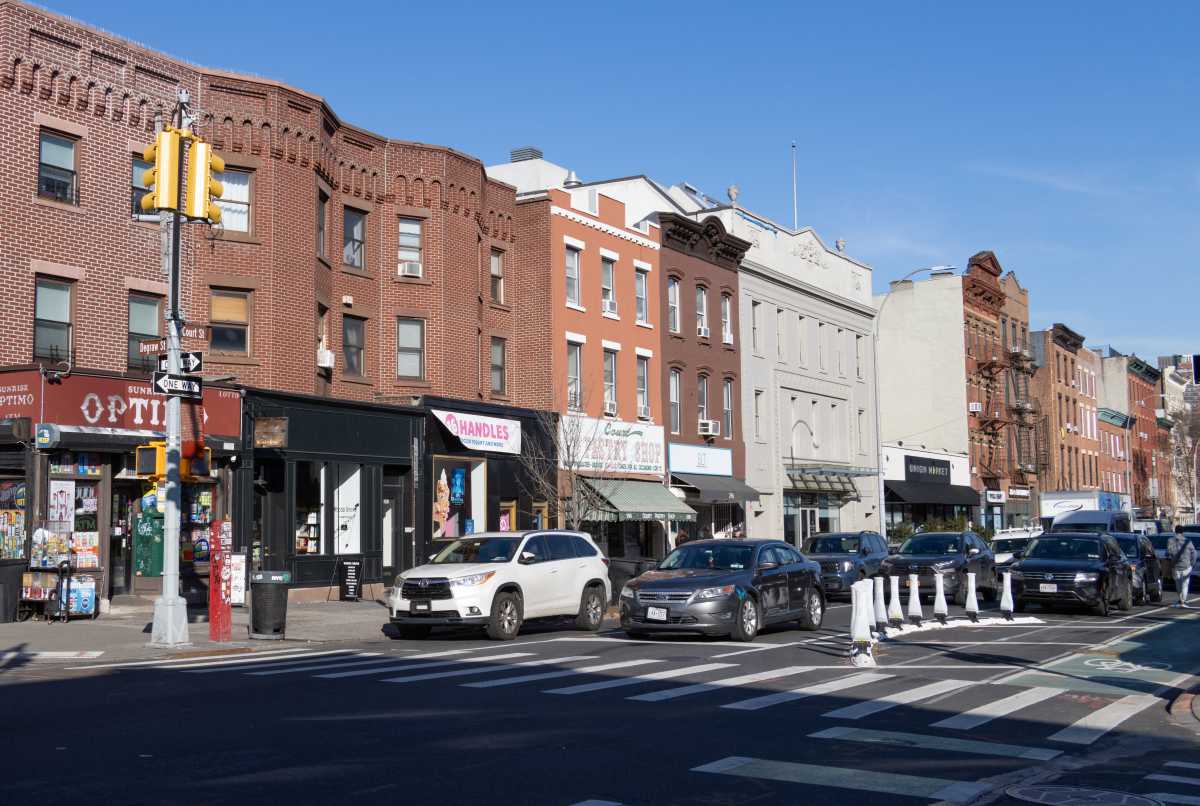
Public Advocate Letitia James kicked the city to the curb on Tuesday over sidewalk accessibility.
Flanked by disability advocates outside City Hall, James said the vast majority of curbs fail to meet the requirements of the Americans with Disabilities Act and announced that she is taking legal action against the city.
“Our city has failed to maintain pedestrian pathways and provide access to city sidewalks for New Yorkers with disabilities,” said James, who added she has received “countless complaints” from constituents about missing, damaged or insufficient curb cuts. “I’ve heard from people who use wheelchairs who feel confined to their homes because they cannot move around the city.”
About 90% of 1,357 curbs along Broadway failed to meet ADA standards, Manhattan Borough President Gale Brewer’s office found during a 2015 survey.
So James conducted a brief survey of her own, guiding press to curbs around City Hall, where she found issues at every corner — at one point she swiped up some crumbled concrete from a curb to illustrate their commonly decrepit state.
“It’s really a reflection of our priorities, unfortunately,” James said.
Last year, a settlement was reached in a lawsuit filed by the United Spinal Association against New York City in U.S. District Court in Manhattan after the association alleged that the city had failed to adequately maintain its curbs.
The settlement — which has important implications as to how the city manages street corners — required the city to continue spending $20 million annually to install and repair curb cuts while also pumping $87.6 million into its 2017 fiscal year budget to further those efforts.
James Weisman, president and CEO of the United Spinal Association, has heralded the settlement, but the public advocate on Tuesday announced that she had officially urged the court-appointed special master to reject it under the grounds that it’s absent of construction timeframes, enforceable provisions or monitoring mechanisms.
“It lacks of the basic hallmarks of a rigorous class action settlement,” James said, with the backing of several advocacy groups. “This is a bad deal for New Yorkers. We must go back to the drawing board and engage in a thorough, thoughtful process that involves all of the relevant parties, not just one, so that we can find real solutions to make this city accessible to all.”
The comments blindsided Weisman, a veteran accessible transit advocate, who is expecting the court’s special master to make recommendations on the settlement before the end of March.
“I don’t think anybody has gotten more than this — in any city in the country,” he said, referring to the new settlement. “Now we’ve got new pour-over money to do better installations. … The only thing that [James] is saying that has some teeth is that there’s no timeline for installations” because the city doesn’t want to be held to a deadline in the event that a natural disaster, like Superstorm Sandy, derails construction, he continued.
“The city has dedicated significant resources to install and upgrade pedestrian ramps in recent years, including a focus on lower Manhattan as the post-9/11 construction winds down,” said Raul A. Contreras, a mayoral spokesman, in a statement. “We are committed to working with the special master and representatives of the disability community to further strengthen this program.”
